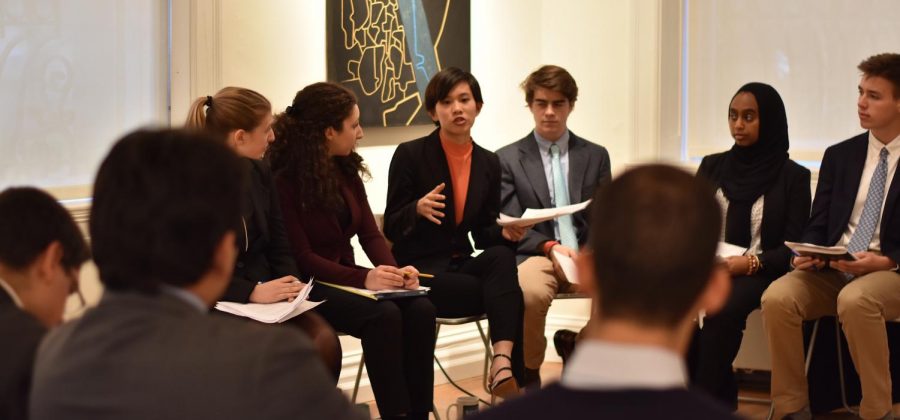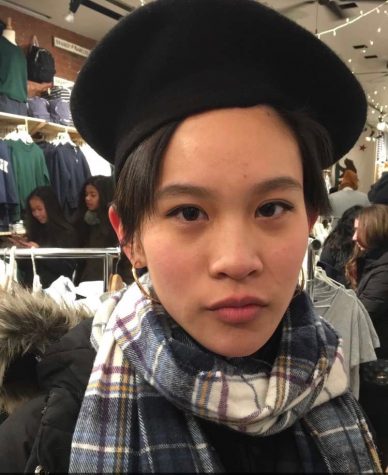How was SEGL?
A junior reflects on her semester at the School For Ethics and Global Leadership in Washington, D.C.
Junior Chloe Sun speaking with her peers during class at SEGL.
February 21, 2018
“How was SEGL?”
Since my time back at Poly, I’ve heard that question what seems like hundreds of times from curious teachers, friends, and even people I consider strangers. Of course, my answer is most often no longer than a quick “It was good!” before their attentions are whisked elsewhere. I haven’t really gotten the chance, as a result, to truly reflect on my time these last four months. What I have felt, though, is the shocking contrast between my time there and my time here at Poly in terms of the educational environment that I have had to transition between.
The School for Ethics and Global Leadership is a selective, semester long program in Washington, D.C. that chooses 24 highly motivated high school juniors to develop ethical thinking and leadership skills in the current global political climate. Poly is no stranger to SEGL, and this year too, SEGL will recruit new students; as a result, most teachers seemed unfazed when I returned. They all had prior knowledge of what SEGL’s curriculum is like compared to Poly’s – and it certainly is very, very different.
SEGL, for being a selective school, is quite relaxed in its grading procedure and curriculum. Most of the courses didn’t have regular tests or quizzes; for classes like English, you could redo assignments as many times as you wanted to get the perfect score. Some classes, like Arabic/Chinese, met only once a week. Our teachers tended to dislike things like AP testing and standardized tests, which was reflected in our course content, in which there was more of a focus on raw academic learning rather than AP style essays, audios, etc. It was an environment whose competitive nature was fostered not by curriculum and grades, but by the people within the close-knit community; it was wanting recognition and approval from one’s own peers that drove us to strive for more. Getting the grade was the easy part. The hard part was sharing your work with your peers and being able to be proud of what you did.
At Poly, I see almost a complete reversal of what I experienced at SEGL. At Poly, I have found an increasing focus on working toward getting better grades, and that is what drives me to work hard rather than a genuine wish to have pride in what I put out. All my classes are fast paced here: a test this week, a quiz next week, a lab report due the day after. It is a constant bombardment of work and grades that I have to carefully balance, things that I could dismiss at SEGL without a second thought. The elements of shared work with one’s peers is hanging on through Socratic Seminars and peer reviewing essays, but somehow it still comes down to grades: speak twice to get a passing grade, look at these requirements and see what score you would get on the AP grading system. In some ways, it has stifled a lot of what I consider my creative thinking when I write, and has made it all very much focused on grades, grades, and grades.


























